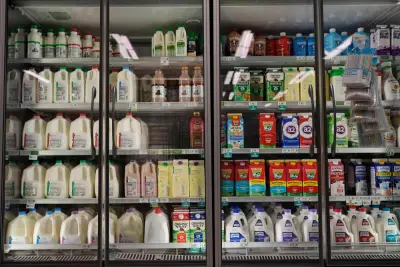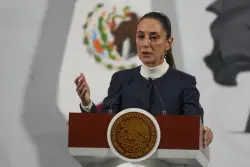The Trump administration faces a Monday deadline to tell judges if it will fully fund SNAP

By GEOFF MULVIHILL Associated Press President Donald Trump s administration faces Monday deadlines to tell two federal judges whether it will use exigency reserves to fully fund SNAP the nation s biggest food aid initiative during the authorities shutdown Related Articles Hegseth visits inter-Korean boundary ahead of safeguard talks with South Korean administrators Leadership shutdown could become longest ever as Trump says he won t be extorted by Democrats A major question for the Supreme Court Will it treat Trump as it did Biden Gov Healey urges Trump administration to release SNAP funding as soon as workable following court ruling What s on the ballot in the first general vote since Donald Trump became president The U S Department of Agriculture planned to freeze payments to the Supplemental Nutrition Assistance Plan starting Nov because it mentioned it could no longer keep funding it due to the shutdown The scheme serves about in Americans and is a major piece of the nation s social safety net It costs about billion per month nationally On Friday judges in Rhode Island and Massachusetts ruled separately that the administration must continue to pay for SNAP They both gave the administration leeway on whether to fund the operation partially or in full for November Trump revealed on social media Friday that he does NOT want Americans to go hungry just because the Radical Democrats refuse to do the right thing and REOPEN THE ADMINISTRATION He declared he was telling regime lawyers to prepare SNAP payments as soon as practicable But his administration has not explained whether it intends to pay a full or partial benefit The situation leaves millions with uncertainty about how they will feed themselves Benefits will be delayed in November regardless of the outcome of the court cases because several beneficiaries have their cards recharged early in the month and the process of loading cards can take weeks in various states Democratic state attorneys general or governors from states as well as the District of Columbia challenged the plan to pause the activity contending that the administration has a legal obligation to keep it running in their jurisdictions Cities and nonprofits also filed a lawsuit The USDA has a billion contingency fund for the operation but the Trump administration reversed an earlier plan to use that money to keep SNAP running Democratic bureaucrats argue that the administration could also use a separate fund of about billion U S District Judge John J McConnell in Providence Rhode Island revealed SNAP must be funded using at least contingency funds and he urged for an update on progress by Monday In an additional order Saturday McConnell disclosed if the authorities makes full payments it must do so by the end of the day Monday If it chooses partial ones which involve recalculating how much recipients get those would need to be issued by Wednesday That does not mean people would necessarily see the payments that swiftly because the process of loading cards can take up to two weeks in certain circumstances McConnell also ruled that all previous work requirement waivers must continue to be honored During the shutdown the USDA has terminated existing waivers that exempted work requirements for older adults veterans and others In Boston U S District Judge Indira Talwani ruled the suspension was unlawful and reported USDA has to pay for SNAP Talwani ordered the federal regime to advise by Monday whether they will use urgency reserve funds to provide reduced SNAP benefits for November or fully fund the activity using both contingency funds and additional available funds Advocates and beneficiaries say halting the food aid would force people to choose between buying groceries and paying other bills The majority of states have reported more or expedited funding for food banks or novel means to load at least selected benefits onto the SNAP debit cards To qualify for SNAP in a family of four s net income after certain expenses can t exceed the federal poverty line which is about per year Last year SNAP assisted nearly million people about two-thirds of whom were families with children


